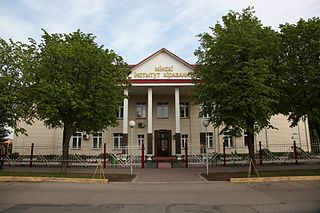Publications
“Income and Life Satisfaction: A 'Wave Formation' Framework” (with Khatai Aliyev and Orkhan Nadirov) – Journal of Happiness Studies.
“Taxes and The Incentive to Work Under Flat and Progressive Tax Systems in Slovakia.” (with Orkhan Nadirov and Drahomíra Pavelková) – Economics & Sociology, Vol. 14, No. 2, 2021.
“Carbon Taxes and the Composition of New Passenger Car Sales in Europe” (with Orkhan Nadirov and Jana Vychytilová) – Energies, Vol. 13, September 2020, Article 4631.
“Tax Progressivity and Entrepreneurial Dynamics.” (with Orkhan Nadirov) – Sustainability, Vol. 12, No. 9, 2020, 3584.
“To Work More or Less? The Impact of Taxes and Life Satisfaction on the Motivation to Work in Continental and Eastern Europe.” (with Orkhan Nadirov and Khatai Aliyev) – Economics & Sociology, Vol. 10, No. 3, 2017, pp. 266–280.
“Portfolio Risk-Return Analysis: The Case of the Automotive Industry in the Czech Republic.” (with Florin Aliu and Drahomira Pavelkova) – Journal of International Studies, Vol. 10, No. 4, 2017, pp. 72–83.
“Change in Earnings Quality Surrounding ERP Implementation.” (with Charu Sinha and Praveen Sinha) – Corporate Ownership & Control, Vol. 15, Issue 1, Fall 2017, pp. 8–17.
“Who Reacts to Income Tax Rate Changes? The Relationship Between Income Taxes and the Motivation to Work: The Case of Azerbaijan.” (with Orkhan Nadirov, Khatai Aliyev, and Minura Iskandarova) – Scientific Papers of the University of Pardubice, Series D, No. 40, February 2017, pp. 165–176.
“Modelling the Impact of Fiscal Policy On Non‑Oil GDP in a Resource Rich Country: Evidence From Azerbaijan” (with Khatai Aliyev and Orkhan Nadirov) – Acta Universitatis Agriculturae et Silviculturae Mendelianae Brunensis, Vol. 64, No. 6, 2016, 1869-1878.
“Cost Analysis – A Case Study of Participating in Groupon Sales” (with Frank Badua) – The Journal of American Academy of Business, Cambridge, Vol. 22, No. 1, September 2016, pp. 17–23.
“Modelling ‘Productivity’ of Budget Expenditure Items Before-and-After the Oil Boom in a Resource Rich Country: Evidence From Azerbaijan” (with Khatai Aliyev and Orkhan Nadirov) – International Journal of Economic Research, Vol. 13, No. 3, 2016, pp. 991–1023.
“Further Evidence on the Ability of FIFO and LIFO Earnings to Predict Operating Cash Flows: An Industry Specific Analysis” (with Brock Murdoch and Paul Krause) – Journal of Applied Business Research, 2013, Vol. 29 No. 4, July/August 2013, pp. 1231–1241.
“The Financial Performance of Global Information and Communication Technology Companies” (with Tim Bauer and Theophanis Stratopoulos) – Journal of Information Systems, Vol. 26, No. 2, Fall 2012, pp. 119–152.
“Earnings Under Generally Accepted Inventory Methods and the Prediction of Operating Cash Flows” (with Brock Murdoch and Paul Krause) – Journal of Business and Economic Perspectives, Volume XXXIX, No. 1, Spring/Summer 2012, pp. 61–72.
“A Meta-Analysis of the Effects of IT Investment on Firm Financial Performance” (with Jee-Hae Lim, Vernon J. Richardson, and Rod Smith) – Journal of Information Systems, Fall 2011, forthcoming.
“Emerging Issues of Management Education in the 21st Century.” (with Amy E. Hurley-Hanson and Cristina Giannantonio) – Global Business and Economics Anthology, Vol. 1, March 2011, pp. 1–7.
“Measuring the Performance of Clusters and Firms within Clusters Using the Residual Income Model” (with Drahomira Pavelkova) – Journal of Economics, Volume 57, No. 3, 2009, pp. 230–246, published by the Institute of Economic Research of the Slovak Academy of Sciences, (“Využití modelu založeného na přístupu residual income pro měření výkonnosti klastrů a firem v klastrech” – Ekonomický Časopis, roč. 57, č. 3, 2009. ISSN 0013-3035, Ekonomický ústav Slovenská akadémia vied. [6]
“The Value Impact of Strategic Intent on Firms Engaged in Information Systems Outsourcing” (with Mark Beasley and Marianne Bradford) – International Journal of Accounting Information Systems, Vol. 10, Issue 2, June 2009, pp. 79–96. [7]
“Using Accounting–Based Performance Measures to Assess the Business Value of Information Technologies and Systems.” (with Vernon J. Richardson, Rodney E. Smith, and Robert W. Zmud) – Robert J. Kauffman and Paul P. Tallon, eds., Economics, Information Systems and Electronic Commerce Research II: Advanced Empirical Methodologies. Volume 13 (Armonk, NY: M.E. Sharpe, 2009), pp. 135–154. [8]
“The Financial Performance Effects of IT–Based Supply Chain Management Systems in Manufacturing Firms.” (with Vernon J. Richardson and Robert W. Zmud) – Journal of Operations Management, Vol. 25, Issue 4, June 2007, pp. 806–824. [9]
“Analysts’ Forecasts and Investments in Information Technology.” (with Glenn Pfeiffer and Vernon J. Richardson) – International Journal of Accounting Information Systems, Vol. 7, Issue 3, Sept. 2006, pp. 238–250. [10]
“Information Technology Investments and Firm Value.” (with Vernon J. Richardson and Theophanis Stratopoulos) – Information and Management, Vol. 42, Issue 7, Oct. 2005, pp. 989–1008. [11]
“Reexamining the Value of Relevance of E–commerce Initiatives.” (with Vernon J. Richardson, Andrew Urbaczewski, and John D. Wells) – Journal of Management Information Systems, Vol. 21, No. 1, Summer 2004, pp. 57–84, (Special Issue on Measuring the Business Value of IT in e–Business Environments). [12]
“Information Technology and Organizational Slack.” (with Kevin Dow and Theophanis Stratopoulos) – International Journal of Accounting Information Systems, Vol. 5, Issue 1, March 2004, pp. 51–63. [13]
“Comprehensive Income: Evidence on the Effectiveness of FAS 130.” (with Paulette Ratliff) – The Journal of American Academy of Business, Cambridge, Vol. 4, No. 1, March 2004, pp. 228–232. [14]
“The Value Relevance of Announcements of Transformational Information Technology Investments.” (with Vernon J. Richardson and Robert W. Zmud) – MIS Quarterly, Vol. 27, No. 4, December 2003, pp. 637–656. [15]
“The Info–Tech ‘Productivity Paradox’ Dissected and Tested.” (with Kevin Dow and Theophanis Stratopoulos) – Management Accounting Quarterly, Vol. 5, No. 1, Fall 2003, pp. 31–39. [16]
“Does the Market Recognize IT–Enabled Competitive Advantage?” (with Lewis Davis and Theophanis Stratopoulos) – Information and Management, Vol. 40, Issue 7, August 2003, pp. 705–716. [17]
“Financial Analysis of Potential Benefits from ERP Systems Adoption.” (with Andreas Nicolaou and Theophanis Stratopoulos) – The Journal of Business and Information Technology, Vol. 2, Issue 1, Spring 2003, pp. 40–50. [18]
“Determinants of a Sustainable Competitive Advantage Due to an IT–Enabled Strategy.” (with Theophanis Stratopoulos) – The Journal of Strategic Information Systems, Vol. 12, Issue 1, March 2003, pp. 7–28. [19]
“Discussion of Impact of IT on Public Accounting Firm Productivity.” – Journal of Information Systems, Vol. 16, No. 2, Fall 2002, pp. 223–226. [20]
“DuPont Analysis of an IT–Enabled Competitive Advantage.” (with Theophanis Stratopoulos) – International Journal of Accounting Information Systems, Vol. 3, Issue 3, Sept. 2002, pp. 165–176. [21]
“Returns on investments in information technology: Beyond the productivity paradox.” (with Vernon J. Richardson) – The Capco Institute Journal, Issue 6, 2002, pp. 83–91. [22]
“Returns on Investments in Information Technology: A Research Synthesis.” (with Vernon J. Richardson) – Journal of Information Systems, Vol. 16, No. 1, Spring 2002, pp. 7–30. This article was awarded the American Accounting Association Information Systems Section Notable Contributions to the Literature Award in 2006. [23]
“Does Successful Investment in Information Technology Solve the Productivity Paradox?” (with Theophanis Stratopoulos) – Information and Management, Vol. 38, Issue 2, Dec. 2000, pp. 103–117. [24]











